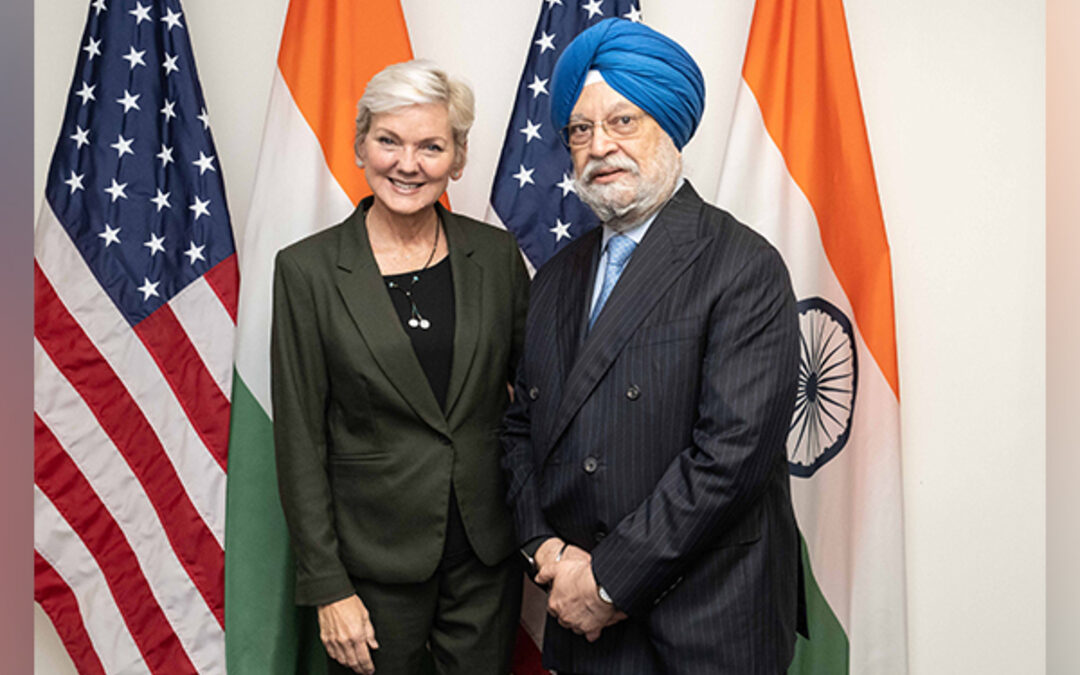India, US to Develop Hydrogen Hubs to Promote Clean Energy
Both countries agreed to drive research and development of green hydrogen through the Renewable Energy Technology Action Platform.
India and the US have agreed to expand bilateral exchanges on clean energy and implement hydrogen hubs in both countries, according to a joint statement issued on Wednesday.
US Energy Secretary Jennifer Granholm and Petroleum and Natural Gas Minister Hardeep Singh Puri issued the statement at the Strategic Clean Energy Partnership meeting in Washington, DC.
Both ministers agreed to drive research and development of green hydrogen through the Renewable Energy Technology Action Platform.
Launched in August last year, RETAP is a collaborative initiative between India and the US to accelerate developing and deploying critical renewable energy technologies.
The two nations “welcomed increased investment in each country’s clean energy markets.”
Energy Transitions
The ministers also discussed the progress made under the partnership to drive clean energy innovation, strengthen energy security and accelerate clean energy transitions.
They also focused more on clean energy manufacturing and building resilient and diversified supply chains.
The two countries highlighted the importance of modernizing the power distribution sector to supply reliable 24×7 power to consumers and welcomed support for India’s smart metering deployment.
They also recognized the developments in expanded efforts on inverter-based resources, power market reforms, system inertia estimation, and cybersecurity.
Sustainable Transportation
The ministers also commended the Indian Railways efforts to achieve net zero carbon emissions by 2030. They welcomed collaboration to support India’s first round-the-clock renewable energy procurement of over 1.5 gigawatts.
The discussion also touched upon the development of an energy efficiency policy and action plan for all railway facilities.
India and the US also agreed to give impetus to sustainable aviation fuel. SAF is an alternative fuel made from non-petroleum feedstocks that reduces emissions from air transportation.
It can be produced from non-petroleum-based renewable feedstocks, including the food and yard waste portion of municipal solid waste and other feedstocks. It can be blended in jet fuel to cut carbon dioxide emissions.
“In this context, the sides welcomed new engagement on sustainable aviation fuels with an inaugural SAF workshop to support training on R&D, tax incentives, supply chain capacity building, market development, financing opportunities, fuel certification, regional and international coalition building, and facilitating commercial partnerships,” the statement said.
The ministers also welcomed the development of two joint reports on SAF and biofuels under the Biofuels Task Force.
Also Read:
India, US Advance Energy Ties, Explore Grid Modernization and Manufacturing
Nirmal Menon
Related posts

Subscribe
Error: Contact form not found.

